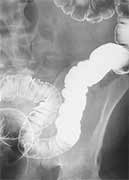Co-use of thienopyridine and prior use of rebamipide also up risk
MONDAY, July 13, 2015 (HealthDay News) — Patients with coronary artery disease are at higher risk of small bowel bleeding (SBB) when taking nonsteroidal anti-inflammatory drugs (NSAIDs), according to research published online July 6 in the Journal of Digestive Diseases.
Kyu-Man Cho, from Chonnam National University Hospital in South Korea, and colleagues compared records of 147 patients receiving NSAIDs at a tertiary-care setting (31 cases with SBB and 124 controls without previous bleeding events) to identify clinical predictors of SBB.
The researchers found that 31 patients underwent capsule endoscopy to evaluate SBB, of whom 74.2 percent showed signs of SBB. Noninvasive treatment was performed in 90.3 percent of patients. The presence of coronary artery disease (adjusted odds ratio [aOR], 12.4; P = 0.04), use of thienopyridine (aOR, 16.9; P < 0.001), and prior use of rebamipide (aOR, 0.3; P = 0.02) were independently associated with SBB in NSAID users in multivariable logistic regression analysis.
“In patients with coronary artery disease and co-use of thienopyridine, it is necessary for clinicians to monitor for occurrence of SBB when they prescribe NSAIDs,” the authors write.
Copyright © 2015 HealthDay. All rights reserved.








